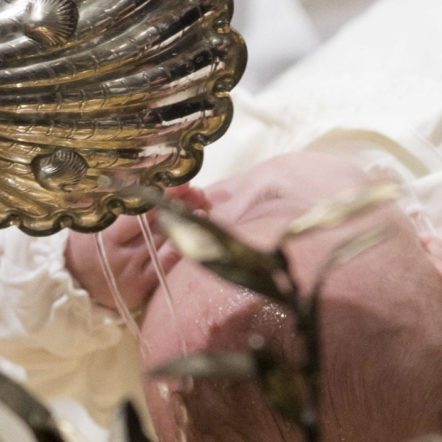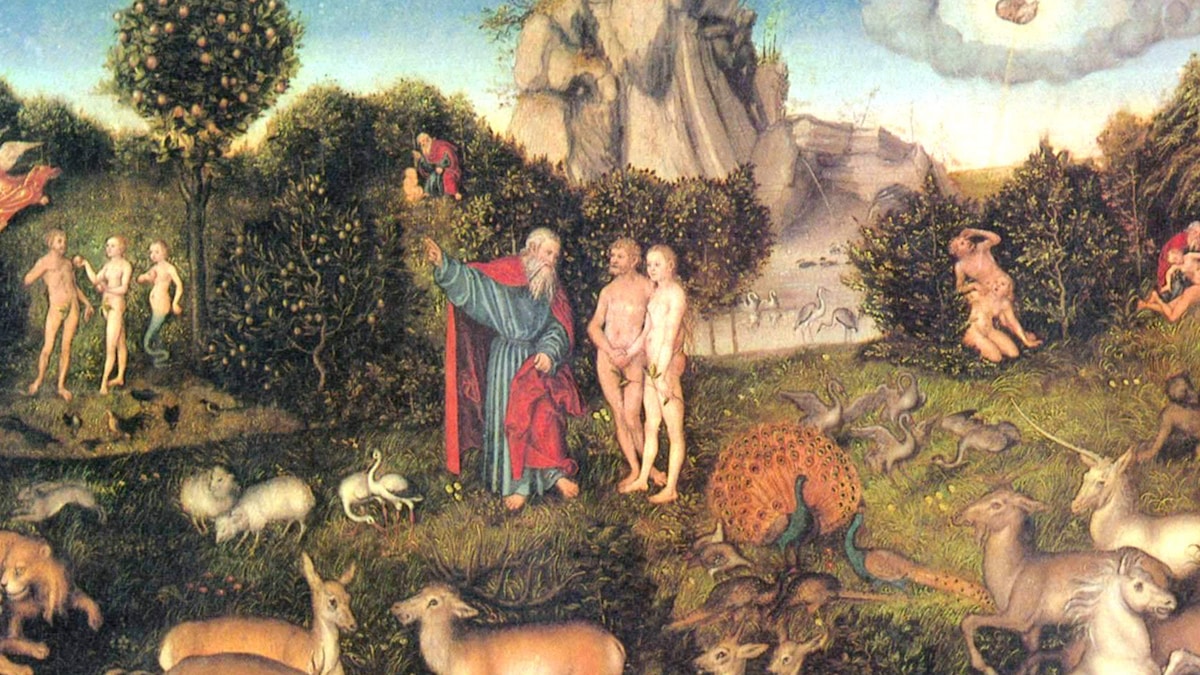Many years ago a social worker was assigned to visit and, if possible, assist various families who lived in a poor area of a city. Some of these persons were down-on-their luck, and were struggling financially through no fault of their own; others, however, were experiencing misfortune primarily of their own causing. The social worker was especially concerned about one set of parents who were raising their children in an absolute pigsty of a home. On several occasions she tactfully hinted at the need to clean their filthy and cluttered house for the sake of their children, but in their laziness they paid her no attention. Finally the social worker had an idea. She gave them a beautiful potted plant to put in their living room, which they accepted with surprise and gratitude. Soon the plant had the intended effect: its beauty made the rest of the living room look disgraceful by comparison. This finally motivated the family to clean the room and make it presentable. Then they realized the now-attractive living room was sitting in judgment over the rest of the house, so they began cleaning it, too, one room at a time. Beauty came into their house, in the form of the potted plant, and by its mere presence, passed judgment on the filth surrounding it, thereby bringing about a great improvement (King Duncan, Lively Illustrations for Effective Preaching, p. 117). In the same way, God sent Jesus into a morally ugly and repulsive world so that we might be attracted by love and forsake sin.
Our God is a God of graciousness and mercy; He must act with justice and punish wickedness, but in doing so He looks for opportunities and reasons to forgive sinners. Second Chronicles (36:14-16, 19-23) describes how, when the Israelites rebelled against the Lord, He sent messengers and prophets warning them to repent. Tragically, they despised His warnings and scoffed at His prophets, forcing Him to act with strictness and severity. Jerusalem was captured by the Babylonians, the Temple of Solomon was destroyed, and the people were led into exile. Even then, however, the Lord did not forget them; after justice was satisfied by a seventy-year exile, God used King Cyrus of Persia as His instrument in freeing the Jews and allowing them to return and rebuild their holy city. In his Letter to the Ephesians (2:4-10), St. Paul tells us, “God is rich in mercy because of the great love He had for us, even when we were [spiritually] dead in our transgressions,” and has shown us “the immeasurable riches of His grace in His kindness to us in Christ Jesus.” Humanity had turned away from God, but the Lord did not in turn abandon us, even when we were in effect wallowing in the filth of our sins. As Jesus (John 3:14-21) explained to Nicodemus “God did not send His Son into the world to condemn the world, but that the world might be saved through Him.” Jesus is the light shining in our darkness, and His example of love convicts us of our intense and personal need for healing and forgiveness; He promises that if we humble ourselves by repenting and turning to Him in faith, we will be saved.
During the U.S. Civil War, someone asked President Abraham Lincoln, “When this war is over, and when the South has been conquered and has come back into the Union, how are you going to treat these rebellious Southerners?” Lincoln responded, “I am going to treat them as if they had never been away” (Gerard Fuller, Stories for All Seasons, p. 57). Lincoln, of course, didn’t have the opportunity to exercise this graciousness, for he was assassinated just before the war ended. Jefferson Davis, the president of the Confederacy, rightly remarked that this was a tragedy for the South—for if Lincoln had lived, his leniency toward the South would have spared America much unnecessary disruption and bitterness.
It was never God’s plan that slavery take root in the United States, that a terribly bloody civil war be necessary to uproot it, and that blacks and other minorities be denied their God-given rights and a proper place in society for many years—just as today, it’s not His plan that war be waged against the unborn in our nation, that religious believers and patriots be vilified and marginalized, and that His divine authority be mocked and defied. The Lord does not want to chastise our country, as He did with ancient Israel—but even if we give Him no choice, His mercy will always be available to sinners, and His blessing and protection will be with those who humble themselves in His sight. As Jesus said to Nicodemus, “And this is the verdict, that the light came into the world, but people preferred darkness to light, because their works were evil.” In many ways this is tragically true of our society today, but it does not have to be true of us as individuals; if we let our light shine in the darkness, others may be attracted by it, and, inspired by our example, may also choose to accept the gift of salvation.
It’s entirely possible that we have more influence than we realize. If we treat everyone with respect, especially people who are unkind or unlikable; if we’re always willing to lend a helping hand, even when it’s inconvenient; if we refuse to speak harshly of others, even when they seem to deserve it; if we hold firm to our moral values, especially when they’re unpopular and supposedly behind the times; if we don’t allow technology, social media, and popular culture to rule our lives, even when it seems everyone else is; if we live by and defend the teachings of the Church, at the risk of making us targets of an intolerant society; and if our words and deeds proclaim Jesus is the Lord of our life, our example will be noticed. Because of the steady decline of morality in our society, many people will ignore, reject, or even fiercely oppose us—but some will be encouraged to seek Jesus because of us. This sort of everyday evangelization can make a real difference in the lives of those who’ve been wandering in the darkness, searching for truth and meaning in life, and hoping to find something this world is unable to offer.
Jesus has shared His light with us, and He wants us to absorb it and reflect it to those around us—thereby doing our part to clean up a world mired in darkness and sin. Because of our baptism, none of us is exempt from this responsibility or mission—and, because of the mercy of God, the grace of Jesus Christ, and the Gifts of the Holy Spirit, each of us is capable of fulfilling it.








